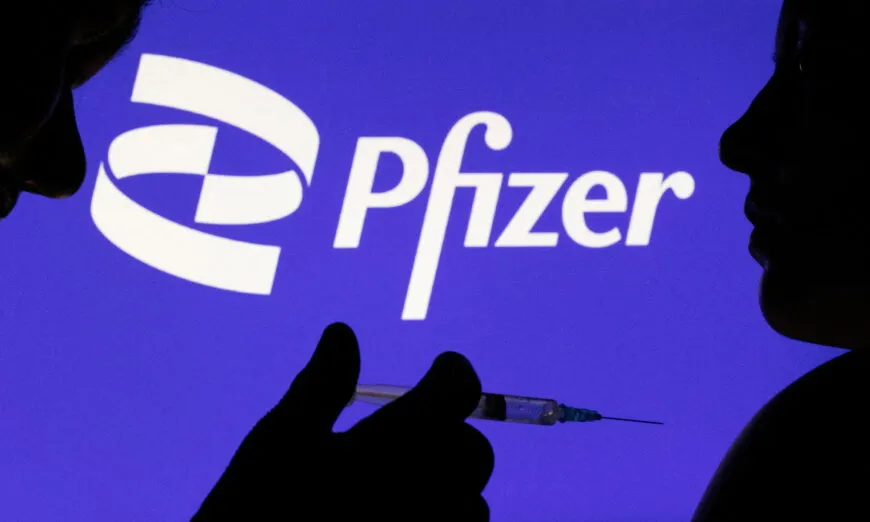Table of Contents
New Zealand Doctors Speaking Out with Science
In her recent interview with Paul Brennan on Reality Check Radio, Nadine Connock connects the dots between New Zealand’s vaccine data whistleblower, and the New Zealand government’s Pfizer contract.
Nadine has an academic background in international relations, politics and development, and international humanitarian law.
Terminated from her job teaching English to refugees and migrants due to the Covid-19 vaccine mandates, she states that she quickly recognised “a very clear playbook script of power and corruption”. With the intent to bring rational discussion into a chaotic and distressing time for New Zealanders trying to navigate “a highly orchestrated operation”, she authored the following two articles which were published in the Daily Telegraph New Zealand:
- Pfizerleak: Exposing New Zealand’s Manufacturing of Mandated Compliance (19 December 2021);
- Pfizerleak #2: Has the New Zealand Government Signed Over Our State Sovereignty? (17 February 2022).
Referencing the Pfizer contract with the Brazilian government, Nadine explains the relevance to New Zealand when our own Pfizer contract is unavailable for public scrutiny. In order to rollout the products rapidly, Pfizer used standardised templates in their contracts with all governments.
The indemnity clause in the leaked Pfizer contract with Brazil states “Purchaser hereby agrees to indemnify, defend and hold harmless Pfizer, BioNTech, [and] each of their affiliates … from and against any and all suits, claims, actions, demands, losses, damages, liabilities, settlements, penalties, fines, costs and expenses … caused by, arising out of, relating to, or resulting from the vaccine …” Read more about the leaked Brazilian contract here, including the use of sovereign assets as collateral to guarantee indemnity.
Nadine concludes that the indemnity clause is the reason our government authorities have acted so aggressively and unjustly towards Barry Young, who should in fact be protected by specific whistleblower laws. She discusses the illegal laws passed in order to allow authorities to violate usual and expected protections, likely for the purposes of safeguarding the Pfizer contract. She specifies four New Zealand agencies requiring investigation for dubious decisions apparently connected to financial incentives: The Environmental Protection Agency (EPA), Ministry of Primary Industries (MPI), Medsafe and Worksafe.
She also names specific individuals who violated due diligence, including but not limited to Ayesha Verrall as previous Minister of Health. The Medical Council of New Zealand get a special mention for the pressure they placed on clinicians to transgress basic medical ethics.
Having studied and lived in failed states around the world, Nadine concludes that New Zealand is currently not a functioning democracy and suggests our national assets were likely signed over as collateral for Pfizer’s indemnity. She refers to the 2009 criminal case against Pfizer and contemplates how the fraud which has been executed against New Zealanders might be used in legal cases to negate the Pfizer contract. Court cases which do not involve protecting Pfizer, such as human rights violations caused by lockdowns, are winning in court, whereas breaches involving Pfizer are very hard to win, which appears related to the Pfizer contract.
An inquiry must involve investigating whether the advisory boards, task forces, and disciplinary groups involved in suppressing citizens’ rights were part of the framework to protect Pfizer against liability. Is our current national debt part of a controlled economic demolition through the waiver of sovereign immunity? Is the dismantling of indigenous rights occurring across the globe related to these rights providing a level of protection? Protected assets cannot be sold as collateral.
Barry Young’s whistleblower case would normally be an employer dispute, but because his data leak breaches the indemnification clause in the Pfizer contract, it seems that he must be aggressively silenced and prosecuted. Nadine also suggests that New Zealand is a good testing ground for the globalists with regards to how future data breaches may be dealt with by observing the public, judiciary and government responses.
NZDSOS has long drawn attention to the ‘supra-sovereign’ status of the Pfizer contract, at whose feet the entire edifice of government, its institutions, the police, regulators and judiciary have fallen. Deaths and injuries are ignored, dissenters are punished and life-saving early treatments are suppressed. The lawyer who led the national surrender to this contract, Simon Watt, is now the deputy chair of the Medical Council, in a clear illustration of the triumph of corporate control over medical ethics and public safety.
We highly recommend the interview with Nadine Connock for a New Zealand context. For a global context, her information dovetails well with that of former Assistant Secretary-General of the United Nations, Ramesh Thakur, in this recent interview with Jan Jekielek, in which he describes the use of regulatory bodies to suppress dissent against the biosecurity state.
The solution comes when enough active dissent overpowers the regulators’ capacity for control, and shifts public attention to listen to those being silenced. We encourage all medical, health and legal professionals who are aware that something is very wrong, to join forces with us and speak out, if not for yourself, then for your children and the future of this country.









